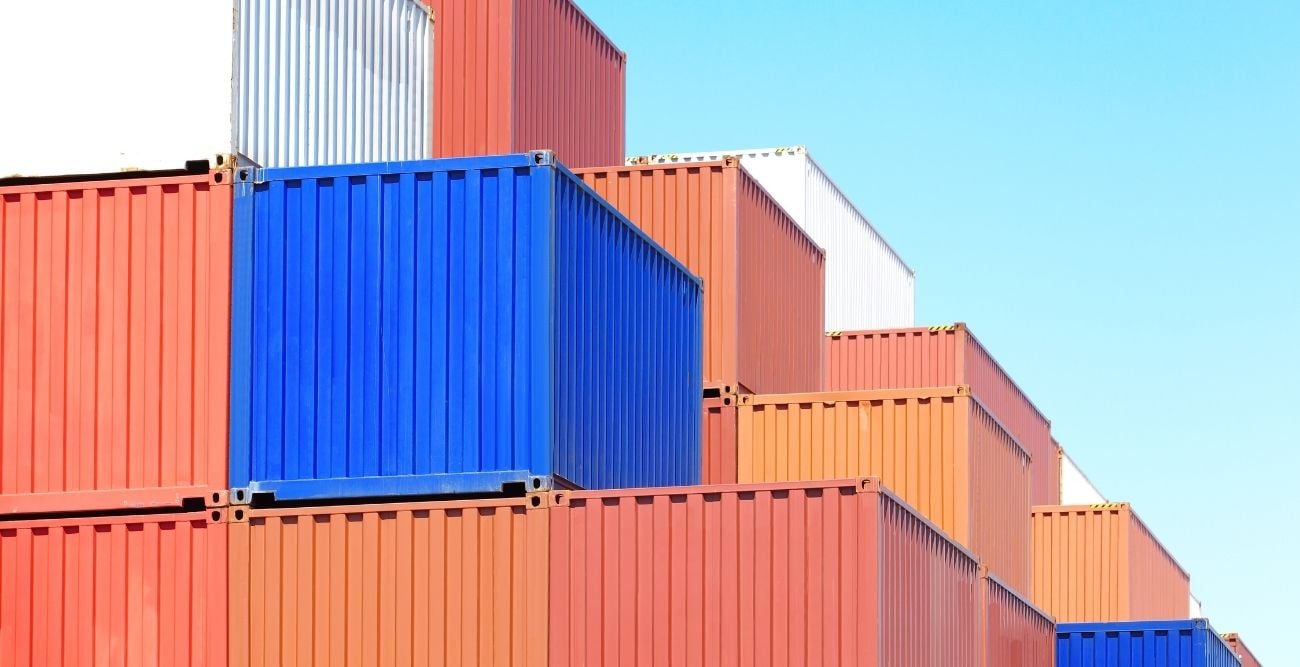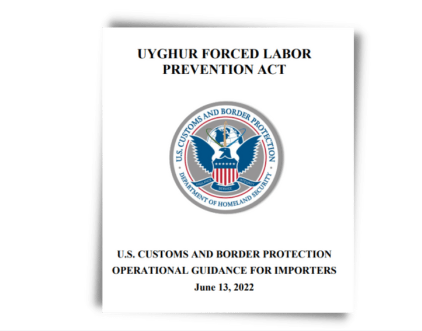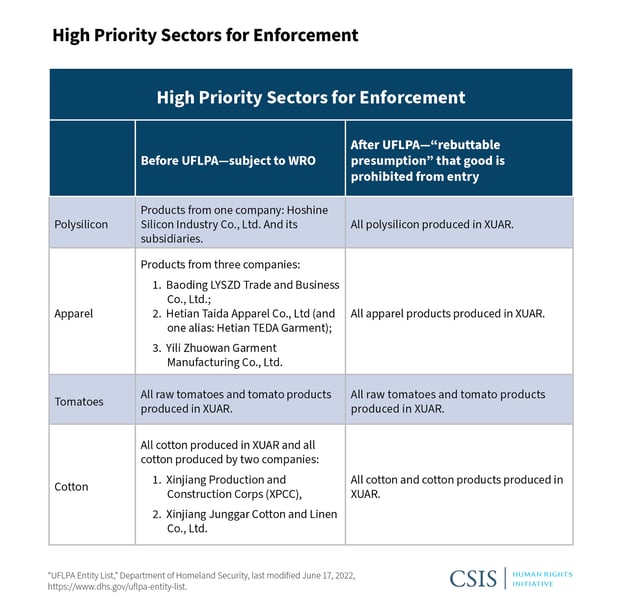How to prepare your supply chain for the new Uyghur Forced Labor Prevention Act

What is the Uyghur Forced Labor Prevention Act (UFLPA)?
The Uyghur Forced Labor Prevention Act (UFLPA) was signed into US law in 2021 to ensure that any products linked to forced labor by Uyghurs and other Muslim minorities in Xinjiang, northwest China, are prevented from entering the country.
The act rebuttable presumes that any products produced, mined, or manufactured in the region, wholly or partly, are linked to its labor camps – unless companies prove otherwise by “clear and convincing evidence” that their supply chain of the product is free of forced labor.
On June 21st, 2022, the Uyghur Forced Labor Prevention Act (UFLPA) came into force –meaning that companies that source material, wholly or partly, from the Xinjiang region in northwest China must now prove that their supply chains are not tainted with forced labor if they want to import their goods into the US. The new act will particularly affect the fashion industry since 20% of the world’s cotton comes from China – and 84% of that from Xinjiang.
At the risk of facing a 250,000 USD fine, non-US and US importers must prevent Xinjiang-related products from entering the US. Companies are obliged to make the necessary changes to their supply chains and provide supply-chain details proving their compliance with avoiding products made from forced labor from Xinjiang.
The message is clear: companies can’t afford to put off compliance – but where to start? In this blog, we will break down everything you need to know about the new act and provide actionable tips on what steps your company can take to ensure full compliance.
Key Takeaways of the Uyghur Forced Labor Prevention Act:
- Failure to provide the requested supply chain details may result in fines of up to 250,000 USD

- To provide the evidence the US government requires, importers must conduct human rights due diligence and supply chain tracing to prove that goods were not sourced, in whole or in part, from Xinjiang, or, if they are from the region, that they were not produced with forced labor
- This requirement extends throughout the entire supply chain, to include goods that may be shipped from elsewhere in China and to third countries for further processing
- At a high level, companies must provide the following to prove that a product was not, in whole or partly, sourced from Xinjiang’s labor camps:
- Supply chain traceability documents from the entire supply chain, from the origin to the final product;
- Identify all the entities involved in each step of the production process;
- A complete list of all the workers at entities subjected to the rebuttable presumption;
- Proof that workers were not subject to forced labor practices.
Compliance requires companies to implement human rights due diligence and supply chain tracing practices
For companies to comply with the UFLPA successfully, they must “exercise due diligence and closely examine [their] entire supply chain”. Although the US government has previously informed businesses with supply chain and investments linked to Xinjiang on the human rights risks, the new UFLPA law goes further by requiring companies importing to the US to undertake heightened due diligence and supply chain tracing practices. Either to consolidate clear evidence to overcome the rebuttable presumption of forced labor, or to prove that the UFLPA is not applicable to their shipment.
What sectors are subjected to the UFLPA?
The act will initially prioritize and target four high-risk sectors, namely:
1. Apparel;
2. Cotton and cotton products;
3. Tomatoes and downstream products;
4. Silica-based products (including polysilicon)
More than 40% of the world’s polysilicon, a quarter of its tomato paste, and a fifth of its cotton supplies originate in Xinjiang, and with more scrutiny into these sectors, the US hopes to have a positive effect on the global supply chains involving these products.
However, other products may be targeted for potential exclusion orders, detentions or seizures as well, such as building materials, electronics, automobiles, petroleum, glass, and solar panels among others, as they often contain silica-based products. On top of that, the UFLPA Entity List will be updated annually with more sectors and entities if needed.

Table: CSIS
How Worldfavor can help
Set up both your human rights due diligence process and trace your supply chain in Worldfavor. The platform is designed to make it easier for companies to collect and analyze their own sustainability performance, while also simplifying the ability
to receive and utilize their supplier information.
The more sustainability and compliance information you can receive from their suppliers, the more you can see into the supply chain and understand your full impact. Contact us today to learn more about how your company can benefit from using Worldfavor!








%20as%20the%20deadline%20approaches.%20Learn%20about%20compliance%20requirements%2c%20potential%20delays%2c%20and%20key%20updates..png)

